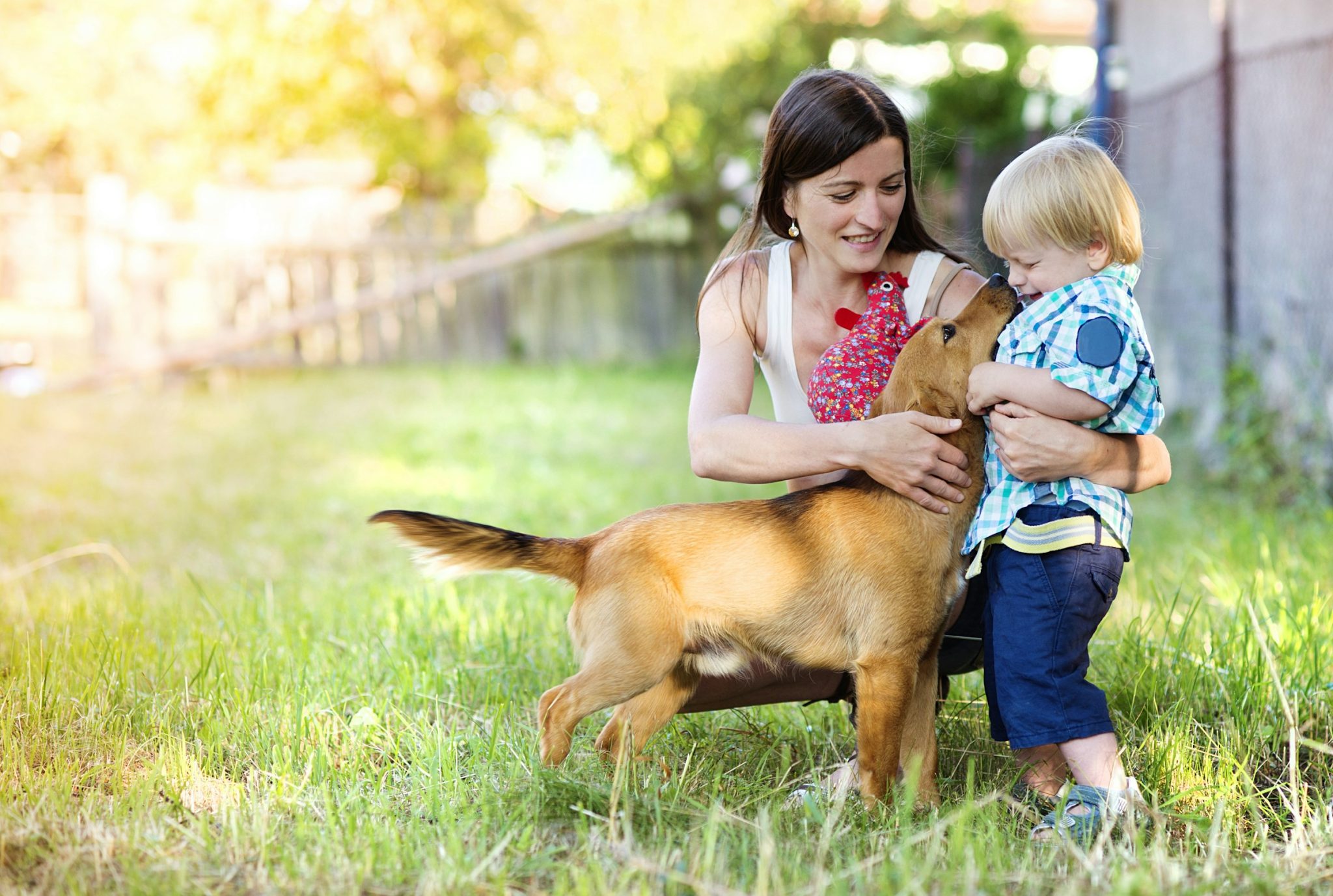Choosing the right dog for your family is a decision that requires careful consideration and thoughtful planning. A well-suited dog can bring immense joy and companionship to a household, but it’s essential to select a dog that aligns with your family’s lifestyle, living situation, and individual preferences. In this blog, we’ll explore the top tips for choosing the perfect canine companion for your family.

Table of Contents
Considerations Before Choosing a Dog
Before choosing a dog, it’s essential to carefully consider your family’s lifestyle, living situation, and activity level. Understanding the exercise needs, energy levels, and temperament of different dog breeds is crucial in aligning with your family’s dynamics. Whether your family prefers an active outdoor lifestyle or a more relaxed indoor environment, these considerations will help narrow down the options and ensure a harmonious match between the dog and your family. Additionally, evaluating the size of your living space and whether it’s suitable for a larger or smaller breed is important to provide a comfortable environment for the dog.
Different breeds have distinct grooming requirements, potential health issues, and traits that may better suit specific family dynamics. Prioritizing breeds known for being good with children and compatible with other pets, if you have them, is essential. Utilizing reputable resources such as breed-specific websites, and books, and speaking with experienced dog owners can provide valuable insights into the characteristics of different breeds, helping you make an informed decision that aligns with your family’s needs and preferences.
Researching Dog Breeds
When researching dog breeds, it’s crucial to consider factors such as temperament, energy level, and intelligence, especially when looking for the most intelligent dog breeds. According to various sources, consistently ranked among the smartest dog breeds are the Border Collie, Poodle, German Shepherd, and Golden Retriever. This insight underscores the importance of understanding the cognitive abilities and trainability of different breeds, as it can significantly impact the compatibility and training of a dog within a family environment. Additionally, considering the intelligence of a breed can help in selecting a dog that aligns with the family’s lifestyle and training preferences, ultimately contributing to a harmonious and fulfilling companionship between the dog and the family.
Adoption vs. Buying
When considering whether to adopt or buy a dog, cost is a significant factor to contemplate. Adopting a pet from an animal shelter is generally much less expensive, with costs ranging from $50 to $200, compared to buying a pet, which can easily cost $500 to $1,000 or more. This cost disparity makes adoption a more accessible option for many families and individuals. Additionally, adopting from a shelter or recognized rescue not only provides a loving home for a pet in need but also offers a rewarding experience for the adopter.
Furthermore, the difference between adoption and buying lies in the source of the pet. When adopting, pets come from shelters or recognized rescues, and the adopter typically needs to qualify to bring the pet home. On the other hand, buying a pet often involves purchasing from a store or breeder, which may contribute to the demand for bred animals. By choosing adoption, individuals can contribute to more ethical and humane treatment of animals while providing a second chance for pets in need of a loving home. These factors highlight the valuable considerations to weigh when deciding between adoption and buying a dog.
Involving the Family
Involving all family members in the decision-making process is crucial when choosing a family dog. Discuss the responsibilities of pet ownership, including feeding, grooming, and exercise, to ensure everyone understands the commitment involved. If you have children, it’s essential to prepare them for the arrival of a new dog and educate them on how to interact safely and respectfully with pets.
Meeting Potential Dogs
When visiting shelters or breeders, take the time to interact with potential dogs to gauge their temperament and compatibility with your family. Observe how the dog interacts with each family member and consider factors such as energy level, friendliness, and adaptability. Some shelters may allow you to take a dog for a walk or spend time in a designated area to get to know them better before making a decision.
Training and Socialization
Regardless of the dog’s age or background, training and socialization are essential for integrating a new dog into your family. Enroll in obedience classes or seek guidance from professional trainers to establish good behavior and reinforce positive interactions. Socializing your dog with other dogs, people, and various environments is crucial for their overall well-being and helps prevent behavioral issues in the future.

In conclusion, finding the right dog for your family involves careful consideration, research, and active involvement from all family members. By understanding your family’s lifestyle and preferences, researching dog breeds, and involving everyone in the decision-making process, you can ensure a smooth and fulfilling transition for both your family and your new furry friend. Remember that welcoming a dog into your family is a long-term commitment, and choosing the right dog will make this journey a deeply rewarding experience for all involved.
- About the Author
- Latest Posts
Whether she is researching the latest trends in home decor, life-changing destination getaways, or the best way to maintain your finances, Dewey takes pride in leaving no stone unturned. She is passionate about distilling and delivering high-quality information that you can use to upgrade your life.

